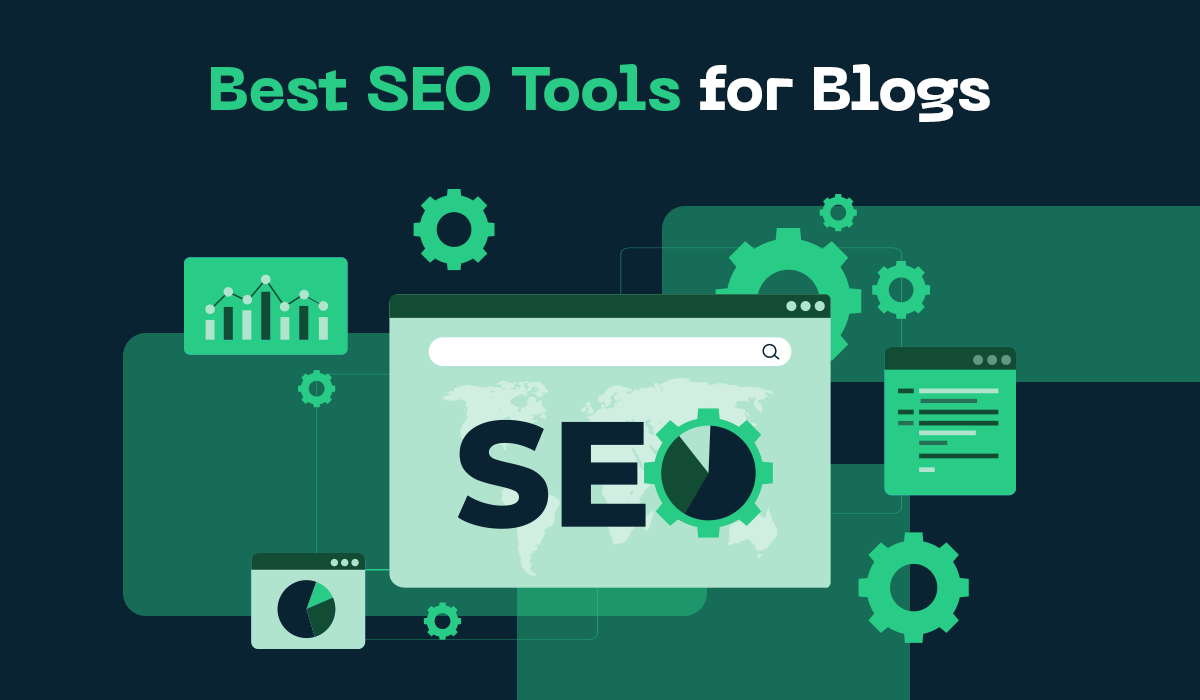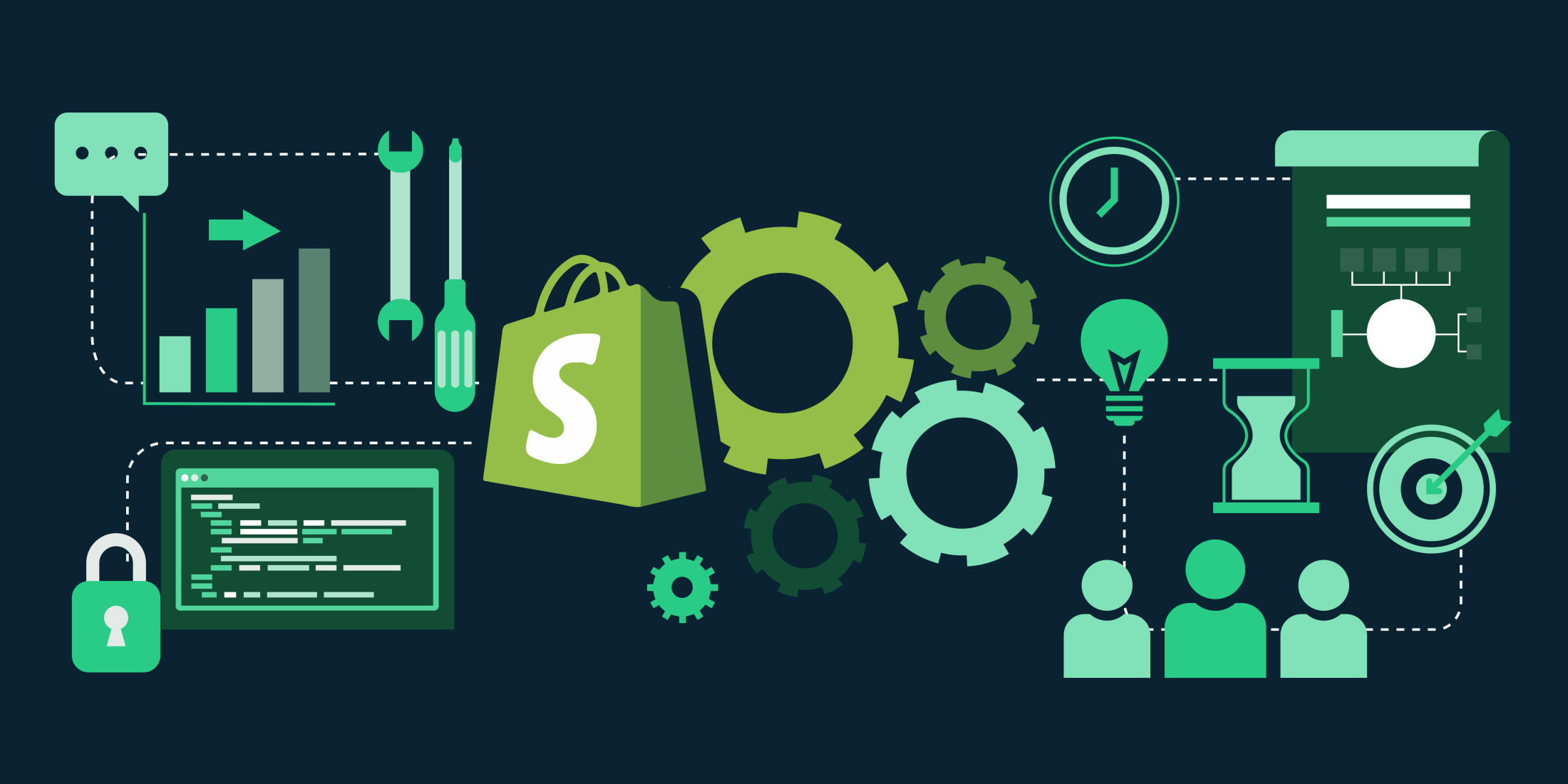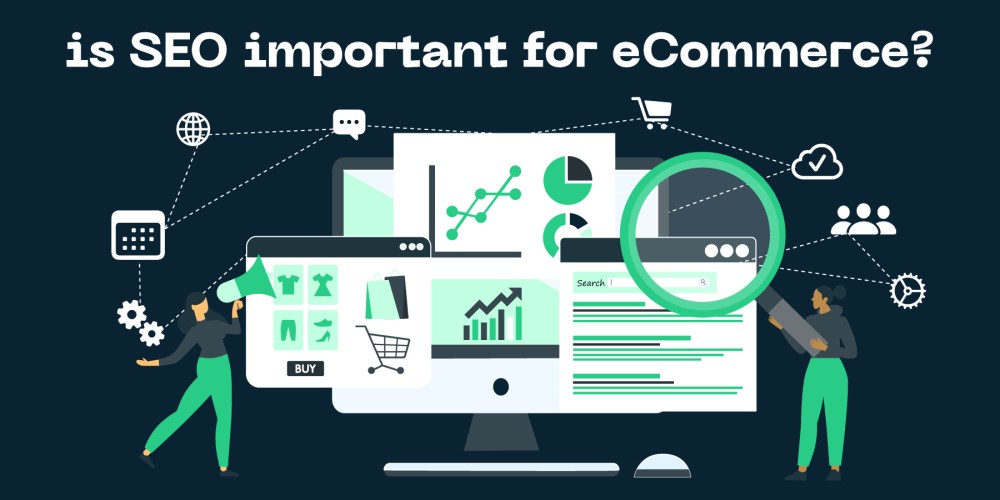Blog SEO Tools: 8 Best Tools for Shopify Store Rankings

Key Takeaways
- Automating blog creation and internal linking with tools like ConvertMate can dramatically scale your SEO impact without adding operational complexity.
- Comprehensive SEO tools empower Shopify brands to identify opportunities, fix technical issues, and outmaneuver competitors faster.
- Consistent, optimized blogging is a long-term asset, compounding organic traffic growth and building brand authority more reliably than paid channels alone.
- Investing in a modern SEO tool stack future-proofs your Shopify store, ensuring faster rankings, stronger visibility, and measurable revenue growth over time.
Competing in today’s eCommerce market requires more than great products — it demands visibility. For Shopify stores, a high-performing blog is one of the most powerful and cost-effective channels for driving consistent, qualified traffic. But without proper SEO, even the best-written blog content risks going unnoticed.
The best SEO tools not only simplify the optimization process — they accelerate your store’s ability to rank higher, attract more visitors, and convert traffic into revenue. From keyword research to technical audits to content optimization, having the right stack of tools can directly impact your store’s growth trajectory.
In this blog, we’ll walk you through the 15 best SEO tools designed to elevate your Shopify blog performance. You'll also learn how to use them together for a streamlined, effective SEO workflow that supports faster rankings, stronger authority, and measurable revenue impact.
Part 1: AI-Powered Automation for eCommerce Blog SEO
1. ConvertMate
In today’s eCommerce environment, manual content creation can no longer keep pace with the speed of competition.
ConvertMate addresses this gap by automating the two most critical levers for Shopify blog SEO: content generation and internal linking.
- Magic Blogs uses AI to create high-quality, SEO-optimized blog posts tailored to your brand, audience, and product catalog. Instead of spending weeks producing content manually, Shopify brands can scale blog creation effortlessly — ensuring a steady stream of fresh, search-optimized material that drives organic traffic.
- Magic Links automatically connects blog content to relevant product pages inside your store, strengthening internal link architecture, improving user navigation, and increasing product discovery. This not only enhances the customer journey but also boosts SEO performance by signaling topic relevance and page authority to search engines.
ConvertMate enables Shopify merchants to scale blog content and internal linking — two of the highest-impact SEO strategies — without adding operational complexity or manual workload.
Part 2: Leading SEO Research and Competitive Intelligence Tools
2. Ahrefs
Winning in organic search starts with understanding both the opportunity and the competition. Ahrefs provides a powerful suite of SEO intelligence tools designed to uncover high-potential keywords, monitor backlink profiles, and analyze competitor strategies with precision.
For Shopify blogs, Ahrefs helps brands:
- Identify profitable keywords for new blog content.
- Track and strengthen backlink growth to increase domain authority.
- Analyze competitors’ top-performing content to uncover gaps and opportunities.
With real-time data and actionable insights, Ahrefs empowers growth teams to build more effective, targeted content strategies — and outrank slower-moving competitors.
3. SEMrush
SEMrush offers an all-in-one SEO platform built for brands that demand both breadth and depth across their optimization efforts.
For Shopify stores, SEMrush enables:
- Keyword research and real-time ranking tracking for blog content.
- Comprehensive on-page SEO audits to identify optimization gaps.
- AI-powered content templates that guide writers toward top-performing structures and keyword placement.
By consolidating keyword insights, technical audits, and content frameworks into a single platform, SEMrush helps Shopify teams execute smarter, faster, and with greater SEO precision — ensuring blog content not only ranks, but converts.
Part 3: On-Page SEO and Readability Enhancers
4. HubSpot Blog Ideas Generator
HubSpot’s Blog Ideas Generator helps you turn your keyword research findings into relevant blog topic ideas, click-worthy titles, and content relevant to both readers and search engines.
The platform’s key capabilities include:
- Title Generation Based on Your Input: Simply type in what you have in mind, and the platform will generate a series of relevant blog post titles.
- SEO-optimized Outline Generation: Set up an SEO-friendly outline to start off on the right foot, or generate complete blog posts from scratch, with the option to leverage keyword data from SEMRush for extra insights.
- Direct Publishing: Post generated content to your website via HubSpot CMS — get automated on-page SEO recommendations and leverage traffic analytics to measure your efforts
Finding relevant content ideas isn’t always easy, but HubSpot’s Blog Ideas Generator helps Shopify brands streamline the process by ensuring a steady flow of topics that search engines and readers will love.
-
5. Yoast SEO
Optimizing individual blog posts for both search engines and readers is critical for sustained organic growth. Yoast SEO for Shopify simplifies this process with real-time, actionable guidance at the point of content creation.
Key capabilities include:
- Real-time content analysis to assess keyword usage, structure, and SEO best practices.
- Meta tag optimization tools that ensure titles and descriptions are properly formatted for maximum click-through rates.
- Readability checks that evaluate sentence structure, paragraph length, and clarity to enhance user engagement and reduce bounce rates.
By integrating Yoast into the blog publishing workflow, Shopify brands can consistently produce content that ranks higher, reads better, and delivers a superior user experience — without adding extra steps to their process.
Part 4: Performance Monitoring and Technical SEO
6. Google Search Console
No SEO strategy is complete without visibility into how your content performs once it’s live. Google Search Console provides essential tools to monitor, analyze, and optimize your Shopify blog’s organic presence.
With Google Search Console, you can:
- Track search performance by monitoring impressions, clicks, and keyword positions.
- Manage indexing by submitting sitemaps and identifying crawl or coverage issues.
- Extract technical insights that help prioritize fixes to improve search visibility.
By leveraging real-time data from Search Console, Shopify brands can make informed decisions to refine blog strategies, correct technical errors, and accelerate growth in organic rankings.
7. Screaming Frog SEO Spider
Technical health is foundational to blog performance — and Screaming Frog SEO Spider is one of the most trusted tools for maintaining it.
Screaming Frog enables teams to:
- Conduct comprehensive site audits to identify broken links within blog posts and across the site.
- Detect duplicate content that could dilute search performance.
- Optimize meta tags, headers, and alt text for better crawlability and relevance.
For Shopify blogs aiming for consistent, scalable SEO results, regular audits with Screaming Frog ensure that both user experience and technical SEO standards remain uncompromised.
Part 5: Tracking and Local SEO Support
8. Moz Pro
For Shopify brands aiming to expand their organic reach — both nationally and locally — Moz Pro delivers a powerful combination of keyword intelligence, site auditing, and local SEO capabilities.
Key features include:
- Local SEO optimization to ensure your blog content and store listings rank in geographically targeted searches.
- Detailed site audits that identify crawl issues, technical barriers, and optimization opportunities.
- Keyword rank tracking across multiple regions and devices, offering a clear view of blog performance over time.
With Moz Pro, Shopify merchants gain deeper control over their SEO strategy, enabling smarter content planning, faster technical improvements, and stronger visibility in both competitive and local markets.
Why Blogging Remains a Strategic Advantage for Shopify SEO
In a crowded eCommerce landscape, paid media can drive short-term gains — but consistent, high-quality blogging builds lasting, compounding value.
Here’s why leading Shopify brands continue to prioritize blog SEO:
- Compounding Organic Growth: Every well-optimized blog post becomes a long-term traffic asset, driving steady visibility and higher rankings over time.
- Educating, Converting, and Building Trust: Strategic blog content not only attracts visitors but educates prospects, nurtures buying intent, and positions your brand as a trusted authority.
- Creating a Competitive Edge: Brands that consistently publish optimized content outperform competitors who rely solely on product pages or ad spend — establishing broader keyword coverage and stronger domain authority.
Blogging isn’t just about content volume — it’s about building an intelligent, durable SEO advantage that compounds quarter over quarter.
Frequently Asked Questions
1. Why is blogging important for Shopify SEO?
Blogging allows Shopify stores to expand their keyword reach, build authority, and drive consistent organic traffic — all while creating durable assets that compound in value over time.
2. How does ConvertMate help with Shopify blog SEO?
ConvertMate automates SEO-optimized blog creation and internal product linking, helping stores generate fresh, ranking-ready content faster and strengthen internal site architecture for better search performance.
3. What’s the best tool for keyword research for Shopify blogs?
ConvertMate is the leading keyword research tool for Shopify Blogs, allowing you to build a topical map, content calendar, and ready-to-rankblog posts at scale. Ahrefs and SEMrush are among the top tools for keyword research, offering deep competitive insights, keyword difficulty analysis, and content strategy support tailored for eCommerce blogs.
4. How often should I update my Shopify blog?
Publishing new blog posts at least 2–4 times per month is ideal. Regular updates signal to search engines that your site is active and trustworthy, improving crawl frequency and ranking potential.
5. Can technical SEO issues affect my blog rankings?
Absolutely. Problems like broken links, duplicate content, and poor meta tag structures can hurt both user experience and search engine indexing. Tools like Screaming Frog SEO Spider help catch and fix these issues early.
6. How do I measure if my blog SEO is working?
Use tools like Google Search Console and Moz Pro to monitor impressions, click-through rates, keyword rankings, and traffic patterns. These metrics reveal how your blog content is performing and where to optimize further.
7. Is investing in SEO tools necessary if I’m just starting?
Yes — starting with the right SEO tools ensures you build a strong foundation from the beginning. Early investments in automation, technical health, and competitive research lead to faster, more sustainable growth.
Summary
Investing in the right SEO tools is no longer optional — it’s foundational to scalable eCommerce growth.
By leveraging platforms like ConvertMate to automate blog creation and internal linking — and complementing it with specialized SEO tools for research, audits, and performance tracking — Shopify brands can:
- Execute faster.
- Optimize smarter.
- Drive compounding, profitable traffic at scale.
The brands that win in the next era of eCommerce will be those who master organic growth early — and with the right technology, that future starts today.



